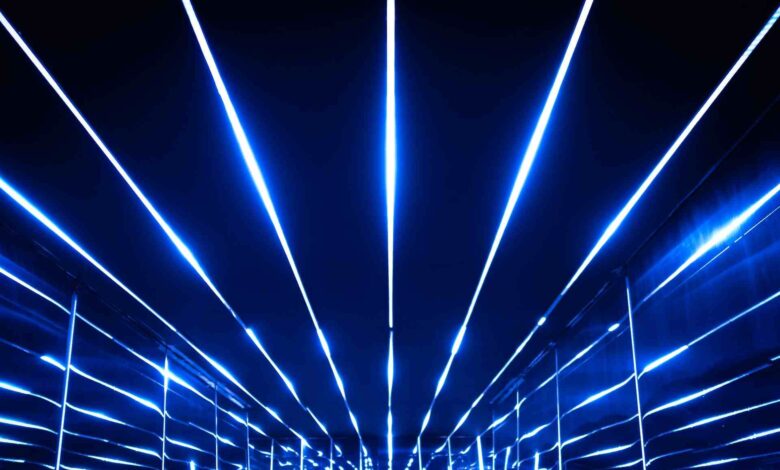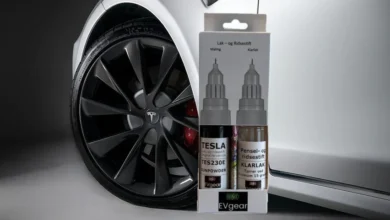The Complete Guide to Blue Light Blocking Glasses

Blue light is a naturally occurring wavelength that can help promote alertness. But when emitted from digital screens like laptops and smartphones, it can contribute to eye strain, discomfort, and headaches. While some people swear by blue light-blocking glasses, they’re not backed by much scientific research. So, are they worth it?
How Blue Light Blocking Glasses Work
Blue light blocking glasses are lenses that filter out or block a specific portion of the electromagnetic spectrum. They are not FDA-regulated, but many manufacturers promote them as tools to reduce eye strain and sleep problems and prevent retinal disease. The sun emits a full range of colors with different wavelengths or frequencies measured in nanometers.
The wavelengths get shorter as you move towards the blue end of the visible light spectrum. Smartphones, computer screens, televisions, and office fluorescent lights contain blue wavelengths. These wavelengths stimulate the circadian rhythm, or internal clock that regulates your sleep and wake cycle. They suppress melatonin production, a natural sleep-promoting hormone, so exposure to it can interfere with your ability to fall asleep and have a good night’s rest. Studies involving blue light filters show they can help prevent eye strain and reduce symptoms such as eye fatigue and headaches.
One small trial in which participants wore either blue-light-blocking or clear glasses and performed a 2-hour computer task found that those wearing the blue-light-blocking glasses experienced less eye discomfort than those who didn’t wear the lenses. Some people report that blue-light-blocking glasses allow them to scroll through their phones or tablets before bed and still fall asleep quickly without sacrificing sleep quality—other studies using blue-light-blocking filters to treat insomnia show mixed results.
When to Wear Blue Light Blocking Glasses
Everyday tasks like scrolling social media, working from home and watching TV make it easier to avoid digital screens. Blue light emitted from these devices may cause eyestrain and headaches and disrupt your natural circadian rhythms, leading to insomnia. Blue light-blocking glasses are designed to filter out harmful rays and help preserve your eye health and sleep cycle. Despite the popularity of blue light-blocking glasses, there needs to be more evidence to prove they are effective.
Research has shown that these glasses don’t significantly reduce eyestrain, help keep you alert or improve your sleep quality. Instead, try other tactics to minimize eye strain and sleep issues, such as taking 10-minute breaks from your screen every hour, using eye drops or wearing eyeglasses instead of contact lenses. Many retailers feature frames that can be paired with prescription lenses and special add-on coatings to block out blue light.
These treatments are available in most frame styles, and they often offer additional features such as anti-reflective, scratch-resistant or anti-smudge benefits. If you’re looking for a pair of glasses to wear while using a digital device, consider a frame with bIue-light-blocking lenses. The best frames will protect your eyes from the damaging rays and prevent signs of digital fatigue, including blurred vision, headaches and dry eyes. In addition, the edges should be comfortable to wear all day long and look stylish in casual settings.
What Are Blue Light Blocking Glasses?
Blue light is a short-wave wavelength found in the electromagnetic spectrum and can cause vision problems like eye strain, headaches, dry eyes and sleep disturbances. Most digital devices emit this light, including laptops, tablets, phones, and lighting. Exposure to this light for prolonged periods can damage the retina, leading to macular degeneration. In addition, it can suppress our natural melatonin production at night, making it hard to get restful sleep.
BIue light-blocking glasses filter out this wavelength to prevent the negative effects of exposure. These glasses typically have a yellow, orange or amber tint to reduce the amount of bIue light absorbed by the eye. These lenses also have a coating to reduce brightness and glare. They are available in various frames, including sunglasses, prescription reading glasses and bifocals. In addition to reducing the symptoms of bIue light exposure, these glasses can help with issues like migraines caused by light sensitivity.
If you suffer from this, look for frames with an FL-41 tint, the same shade used by police car lights. This will help reduce your screens’ flashing and alleviate migraine symptoms for a more comfortable experience at work.
The Best Blue Light Blocking Glasses
The best bIue Iight-blocking glasses filter out or reduce the amount of harmful bIue light that reaches your eyes. To achieve this, a special lens treatment is applied to the lenses of these glasses. Some brands also add UV protection to these lenses, which is important if you wear them outdoors.
These lenses are also scratch-resistant and anti-reflective, making them comfortable to wear and clean. Many spend over two hours daily using a device emitting blue Iight, such as a computer, tablet or smartphone. This is why protecting your eyes from harmful light is important, especially as you age. Adding blue light-blocking glasses to your eyewear collection can help reduce digital eye strain and is particularly helpful if you suffer from headaches.
To get the most out of your bIue light-blocking glasses, block all wavelengths within the 400 nm to 550 nm range, scientifically proven to prevent melatonin disruption. For those who already wear prescription glasses, a pair of bIue light-blocking glasses can be added to your existing frames for a low cost. Most retailers in this guide offer effective prescription glasses that can be bolstered with a bIue light-blocking add-on for a small additional fee




